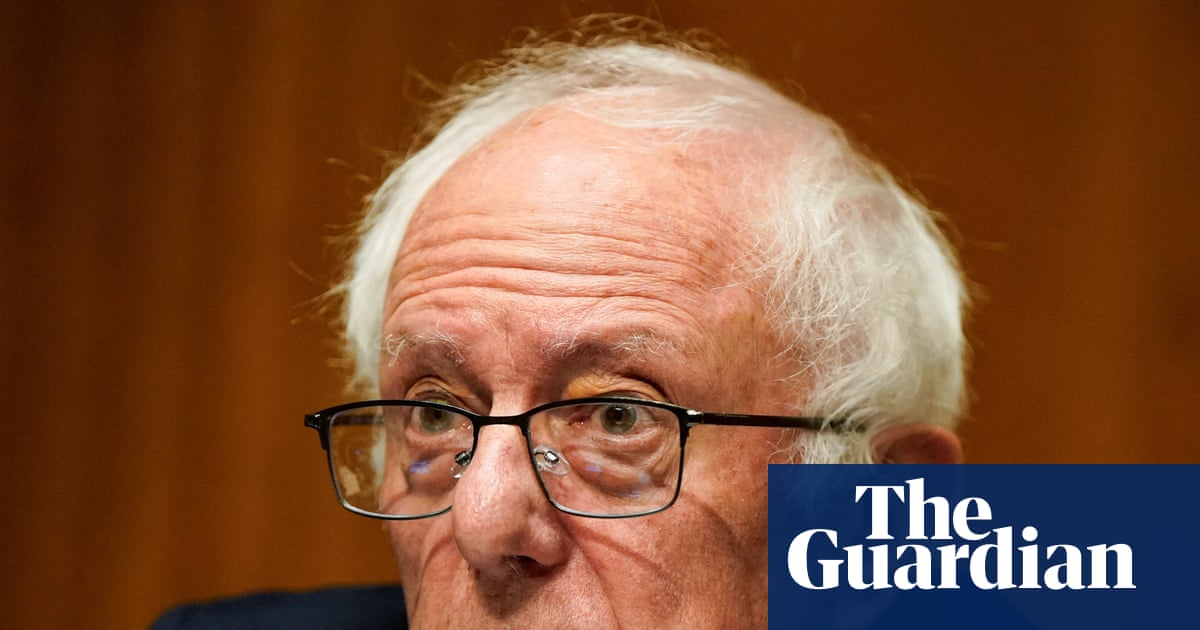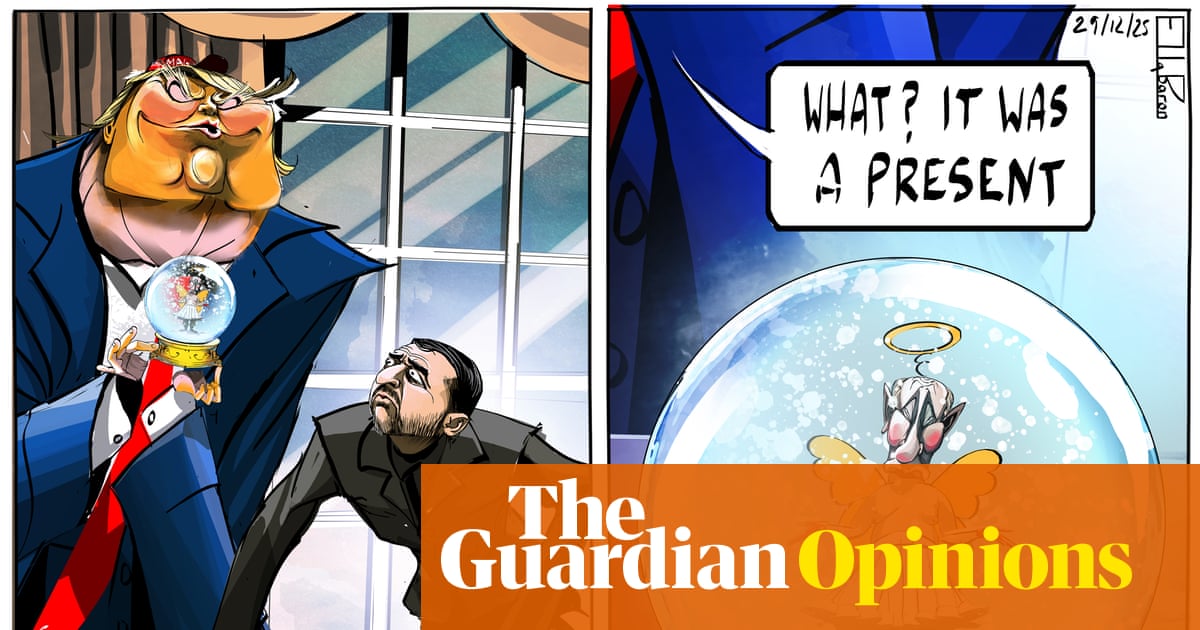There’s an obvious way to destroy Nigel Farage’s political momentum. A poll by the research group Persuasion UK, testing various messages, found that by far the most effective line of attack is highlighting his complicity with corporate interests. The message that hit hardest was that Farage’s real loyalties lie with “the rich, the powerful, his mates in big business”, and his “party” (actually a business called Reform 2025 Ltd) “has taken over £2m from fossil fuel lobbyists, polluters, and climate change deniers … He’s not smashing the system. He and his rich friends basically are the system.”
But this is a string Labour cannot yank, as it would pull its own roof down. If there is a defining mark of Keir Starmer’s administration, it is immediate capitulation to powerful lobby groups, especially corporations and billionaires. This is what explains the otherwise inexplicable: its planning policy, tax policy, competition policy, deregulation policy, AI policy, food policy, its plans to reboot private partnerships in the NHS, its banning of Palestine Action.
Nor can the government point out the blindingly obvious: that it is not asylum seekers who jack up rents, undermine the NHS, hold down wages and keep people insecure, but capital. It cannot tell us that the role of the hard right is to shift the blame for decades of economic attacks by the rich and powerful on to powerless people who have only just arrived here. This would mean mentioning capital, wealth and power: topics it avoids like the plague.
In other words, the government has flunked the simplest test for a Labour administration: how to respond to an insurgent hard right. A large tranche of evidence from Europe and around the world shows that if you seek to compete with it on harshness and cruelty, obsess over its themes and adopt its rhetoric, you merely legitimise and empower it. But, tragically and incomprehensibly, Keir Starmer’s government has done all this, and keeps doing it, despite repeated warnings.
People who approve of Farage will vote for him, emboldened by a Labour party that has told them, in effect, that he is right. People who hate Farage will vote not only against him, but also against a government seen to be handing the country on a plate to him. Unless its MPs rebel and defenestrate Starmer and Rachel Reeves, it is hard to see any trajectory for Labour now, other than electoral wipeout.
All this presents voters with a massive problem. When a dominant party opposes the principles and people it once existed to serve, we are left reeling, disoriented, lost. But it also presents an equally large opening. Farage remains deeply unpopular in the UK; he has merely stepped into a gaping vacuum of disillusionment and despair. The opportunities for progressive politicians to seize this moment, to even greater effect, are simply waiting to be taken.
I have no party loyalties: as a journalist, I feel I should stand apart, and as a pragmatist I’m happy to go with whatever works. But I’m happy to see the election, on a huge majority, of Zack Polanski as Green party leader. This is not because I disrespect the other leadership candidates, who have their own great strengths (though they are somewhat undermined, I feel, by risk aversion). It is because I believe that his style and emphasis meet the challenge of the moment. His campaign video calling out the scapegoating of asylum seekers for political failure was the film I’ve wanted to see for a long time. He correctly identifies Reform UK as “a party of millionaires representing the interests of billionaires, but claiming to be the voice of the working class”. Labour can’t talk about that either, as it cannot bring itself to say “billionaire”.
He is loud and confrontational at a time when nothing else will do. He does not fear controversy – a useful lesson any politician can learn from Farage. He understands the need both for clear and simple policy messaging – on corporate and billionaire power, exclusion and environmental collapse – and for fighting the radical right with unapologetic rhetoric. He is much harder than his opponents for the media to ignore.
He calls his approach “eco-populism”, but I feel this is not a wholly accurate description. His communication style might be fierce and direct, but it is layered on top of the party’s deep and thoughtful agenda, embodied in its manifesto: for example, bringing the railways, water companies and big five energy companies back into public ownership; guaranteeing access to an NHS dentist for all; greatly expanding the provision of mental healthcare; abolishing the Malthusian two-child benefit cap and scrapping the bedroom tax; repealing anti-union legislation and introducing a charter for workers’ rights; pressing for a maximum pay ratio within any organisation of 10:1; enabling local authorities to introduce rent controls; replacing the House of Lords with an elected chamber and introducing a fairer voting and party funding system, alongside the far-sighted environmental policies we would expect, all funded by a much fairer and more redistributive tax settlement. None of this changes as a result of Polanski’s win, as Green party policy is established democratically.
Importantly, he seems prepared to strike deals with political rivals such as Your Party, which might help to prevent the traditional fragmentation of the left vote. It seems plausible to me, through a combination of mass disillusionment with Labour, strategic targeting and much greater visibility for Polanski’s party (whose policies already represent everything a modern Labour party should stand for, but doesn’t) that the Greens could take several dozen seats at the next election, and end up holding the balance of power.
after newsletter promotion
I believe we are now entering a new phase of strategic voting. I sense that voters, long treated as idiots by those who claim to represent them, are ready to start building constituency movements that decide collectively which anti-establishment candidate to back. This opens vast territories for all those – whether it be the Greens, Your Party, the more radical Liberal Democrats, or dissident Labour candidates – who are prepared to pull the strings the Labour leadership will not and cannot pull: the heartstrings of a country that retains a sense of justice, of dignity and of fury towards the predations of an economic elite.
Those who can channel this anger, who can speak the language of outrage and hope, are the politicians of the moment. They will contribute to what could prove to be, in 2029, the greatest electoral reset in our modern history.
-
George Monbiot is a Guardian columnist

 3 months ago
61
3 months ago
61

















































